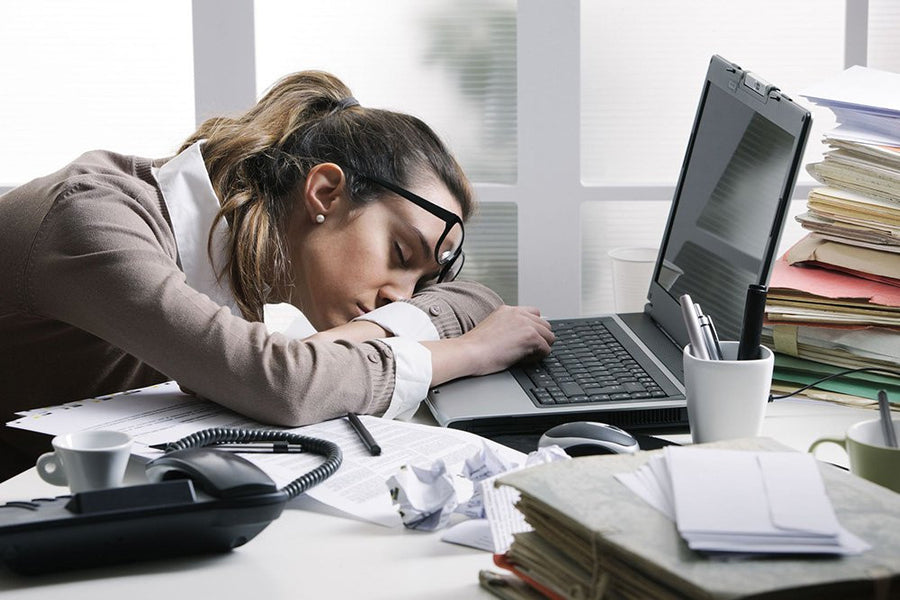
At a barbeque to celebrate Australia Day this week I was struck by how many of my friends seemed totally exhausted. Whether it was because they are the parents of young kids, had been partying over the holiday season, or are hard at work climbing the corporate ladder, there was a common bond of fatigue uniting us all. For some of my friends, a minimum 50-hour workweek is not only the norm; it’s the expectation if they want to be successful. Other friends sit in traffic for at least three hours a day during their daily commute. This lifestyle isn’t leaving much room for rest and relaxation. In fact, the first thing most of us sacrifice in our efforts to keep up with the pace of modern life is sleep.
Over the last few decades researchers have established that the average adult needs somewhere between seven and nine hours sleep each night. But many of us aren’t even getting close. The US National Health Interview Survey of more than 250,000 people found almost 30 percent of men and women were sleeping less than six hours each night. According to the UK Mental Health Foundation, over 30 percent of the population suffers from insomnia. An Australian study found that kids around the world are being affected too and are losing on average 37 minutes each night of recommended sleep.
And yet, as the latest research is demonstrating, sleep is the one thing we should be prioritising if we want good health and wellbeing. Research continually links getting less than seven hours of sleep each night to wide ranging negative effects on the cardiovascular, endocrine, immune, and nervous systems. Sleep deprivation has been linked to obesity, diabetes, heart disease, anxiety and depression. Getting six hours of sleep or less a night makes you four times more likely to get a cold compared to those who sleep more than seven hours a night.
But there’s another side of sleep deprivation that you may not have considered. Despite what famous luminaries like Thomas Edison, Margaret Thatcher and Benjamin Franklin would have you believe, foregoing sleep does not make you more productive or more successful.
You may have heard of the 10, 000 hour rule, made famous by author Malcolm Gladwell in his book Outliers. The idea is that it takes roughly 10, 000 hours of practice to achieve mastery in a field. The concept has its basis on study conducted in the early 1990s by K. Anders Ericsson, a Professor of Psychology at Florida State University who looked at the practice habits of violin prodigies and found that by age 20, the most elite performers had averaged more than 10,000 hours of practice in their lifetime, while the less able performers had only clocked 4,000 hours of practice. This study is often used to make the case for practice over innate talent as the underpinnings of greatness.
But there is one thing that is often overlooked in the results of the seminal research. Ericsson also found that sleep was a major factor in influencing peak performance. The top performers were those who slept on average eight hours and 36 minutes a night, about an hour more than the ones who didn’t quite make it to the top. The virtuosos were also more likely to take a nap during the day, especially before public performances.
Ericsson’s research is made all the more compelling when you consider the results of new studies being done at the Stanford Sleep Disorders Clinic and Research Laboratory. In 2004, they demonstrated that they could improve the brain function of Stanford undergraduate students by getting them to sleep more. They followed up in 2011 and had elite basketball athletes progress from sleeping an average of 6.5 hours to 8.5 hours each night. When they looked at the player’s on court performance measures, the results were staggering. They had improved their free throw shooting by 11.4 percent and their three-point shooting by 13.7 percent. Every player on the team was also quicker than before the study, improving their sprint drills by an average of 0.7 seconds. The players also reported feeling less fatigue, more energy and mood improvements. In just a few months, the players had seen performance improvements that can only be replicated after years of training or with artificial drugs.
All this compounds when you consider that research also shows that after just one night of bad sleep your ability to sustain attention and maintain vigilance is reduced; your reaction times slow and you’re more likely to make mistakes; your working memory, memory consolidation, mental arithmetic, reasoning, innovative thinking, strategic planning, creative thinking, decision making, and language skills are all impaired. And the longer you stay awake, the worse it gets. I think it’s time we challenge the old adage of you snooze you loose. I confess that I used to be just like my ambitious friends who sacrificed sleep in hopes of getting ahead in the world. I would wear the number of days I worked straight without time off as a badge of honor. It was my way of telling the world I was going somewhere and making something of my life. But after falling ill with an autoimmune disease, and the more I research the latest science in mind body medicine, the more I realise the folly of this approach. It’s not just about good health for me, it’s now about performing at my best too; and sleep is up there among my top priorities.
I’m currently doing a deep dive into the mind-body-sleep connection for the book I’m writing and promise to bring you more fascinating research soon on this blog, but in the meantime you might like to read this post I wrote about How I Learned To Get A Good Night’s Sleep.





 The Connection (DOWNLOAD-TO-OWN)
The Connection (DOWNLOAD-TO-OWN) My Year Of Living Mindfully - Book
My Year Of Living Mindfully - Book




